Drug & Alcohol Rehab in Leeds
A report by Public Health England shows that between 1st April 2019 and 31st March 2020, 2,921 people were presented for first-time addiction treatment to drug and alcohol rehab in Leeds. Of these, 23% were parents who were living with children. [1]
Worryingly, reports from 2021 show that drug and alcohol-related deaths were on the rise, with coroners reporting that drug and alcohol-related deaths were higher in Leeds than elsewhere in the region. [2]
With these concerning statistics in mind, it is clear that there is a need for more education around the dangers of drugs and alcohol in Leeds.
It is no secret that substance abuse and addiction can cause huge problems for individuals, as well as the families and communities around them.
The effects of addiction can take a devastating toll on a person’s physical health, mental well-being, finances, love life, personal relationships, and overall wellness.
For many, what starts out as recreational drinking or drug use can descend into a cycle of despair and substance abuse. Once a person falls into this trap, it can be incredibly difficult to get out.
Perhaps it is not surprising, given our binge drinking culture and socioeconomic problems, but the United Kingdom ranks highly in terms of the number of people suffering from addiction and substance abuse.
It is particularly a problem in the northern towns and cities of England.
A recent study identified the ten worst towns for alcohol abuse in England – of the ten towns featured; nine were situated in the North. Of these, 23% were parents who were living with children. [1]
Worryingly, reports from 2021 show that drug and alcohol-related deaths were on the rise, with coroners reporting that drug and alcohol-related deaths were higher in Leeds than elsewhere in the region. [2]
As bleak as these statistics are, there is always hope for those struggling with addiction. If you are serious about getting clean, the best thing you can do is go to rehab, where you will be able to get many different kinds of treatment in a safe environment.
This is why rehab is so effective at treating addiction – there is nothing else that offers this level of care under the same roof.
We at OK Rehab specialise in rehab referrals, and we can get you into rehab in Yorkshire as soon as possible. All we need to do is speak with you on the phone and go through your personal assessment.
The aim of this conversation is to find out more about you as an individual and how you have struggled with addiction and substance abuse. Once we have a better idea of this, we will be able to recommend a rehab that is a good fit for you.
If you are ready to start that conversation, you can call us now on 0800 326 5559, where a trained member of the OK Rehab team is waiting to talk to you.
We understand that this is a big step, so please feel free to read on and get more information before giving us a call.
Please call our 24-Hour Helpline: 0800 326 5559
Pre-rehab steps: Interventions

Interventions are common when close friends and relatives become concerned about drug or alcohol abuse in someone they love.
Traditional interventions aim to make that person admit that they have developed a substance use disorder and eventually agree to attend drug and alcohol rehab in Leeds.
However, these interventions are not always successful as the substance user can often feel like they are being unfairly judged or ganged up on when so many people confront them at one time.
For this reason, more and more people in Leeds are turning to professional interventionalists to help them. This is known as a CRAFT intervention.
CRAFT stands for Community Relations and Family Training. A professional interventionalist is hired to teach friends and family how they can change their behaviour toward a person with a substance use disorder to help them change their own behaviours.
Friends and family will also be taught to put their own needs above the needs of the substance user and to take care of themselves before sacrificing their own needs to care for the person who is making poor choices.
Through the CRAFT approach, friends and family members will also learn when they should begin to discuss rehab with the person in question.
This way, they will not feel like they are being ganged up on and will be more open to the idea of getting better.
Please call our 24-Hour Helpline: 0800 326 5559
How do I know if I have an addiction?

A tell-tale sign that you may have an addiction is that you are looking on this webpage now.
It is also possible that your friends and family have already expressed their concerns about your substance use directly to you.
There are many different signs that could point toward a substance use disorder, and some people will be able to hide an addiction better than others.
However, some common signs that someone is struggling with an addiction to either drugs or alcohol are:
- Being secretive about their whereabouts
- Being dishonest
- Loss of interest in activities or hobbies
- Mood swings or irritability
- Poor performance in work or school
- Not taking care of their responsibilities
- Trying to stop using the substance time and time again
- Using the substance even when they know it is dangerous
- Borrowing or stealing money to pay for your habit
- Personal hygiene becomes less of a priority
- Insomnia
- Feelings of hopelessness
- Anxiety or depression
- Paranoia
If you spot any of the above symptoms in yourself, it is a good idea to visit your GP to get help and advice.
If you present to your healthcare provider with alcohol addiction, they normally use a small questionnaire – called the CAGE questionnaire – to determine whether or not you have an addiction and how severe the addiction is.
The CAGE questionnaire is as follows:
- Have you ever felt the need to Cut down on your drinking?
- Have you ever felt Annoyed by others criticising your drinking?
- Have you ever felt Guilty about the amount you drink?
- Have you ever had to drink first thing in the morning to make yourself feel normal or to prevent sickness? (Eye-opener).
Each question comes with a score of zero for no and one for yes – and a score of two or more indicates a probable addiction.[3]
Please call our 24-Hour Helpline: 0800 326 5559
How much does it cost to attend drug and alcohol rehab in Leeds?

If you are considering attending drug and alcohol rehab in Leeds, it is a good idea to do your research first.
Each rehab facility will offer its own range of therapies and treatments, and as such, each facility will have a different price.
Not only that, but each person and addiction is different, so what works for you won’t necessarily work for someone else.
While some people need to spend 30 days getting a range of extensive treatments, some people may only need to spend seven days detoxing, which will obviously cost less.
Most drug and alcohol rehab facilities in Leeds cost around £500 per day or £14,000 for a 28-day stay.
However, costs can vary from as little as £1,000 per week for the most basic rehab facilities to as much as £10,000 per week for the most luxurious facilities.
It is a good idea to contact several drug and alcohol rehabs in Leeds to get an idea of how much they charge. This way, you can make an informed decision.
Please call our 24-Hour Helpline: 0800 326 5559
Is drug and alcohol rehab in Leeds covered by health insurance?
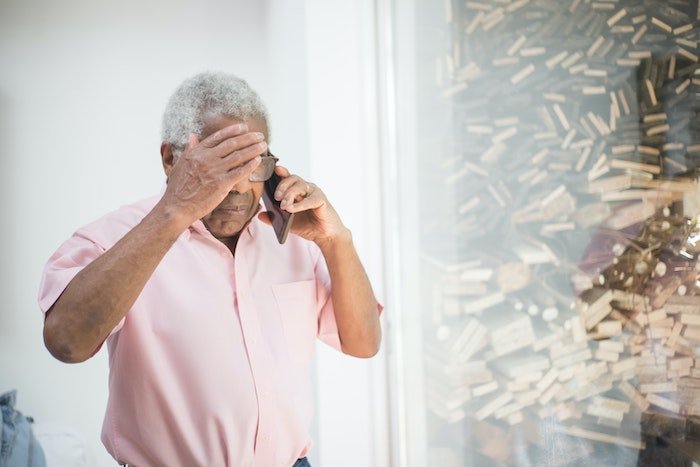
Most insurance providers cover at least some of the cost of a stay in drug and alcohol rehab in Leeds. However, not every policy will have this type of cover.
If you have private healthcare coverage, your policy documents will have information about exactly what is covered with your policy. Your provider will also be able to tell you whether you can claim for private inpatient rehab in Leeds.
Many people pay into a private healthcare policy via their employment. In this case, check your documentation or contact the provider to find out what cover you have.
You will be required to inform your employer if you intend to make a claim through company health insurance. While this may be difficult to admit, it is best to get treatment as soon as possible.
Please call our 24-Hour Helpline: 0800 326 5559
Is drug and alcohol rehab in Leeds available on the NHS?
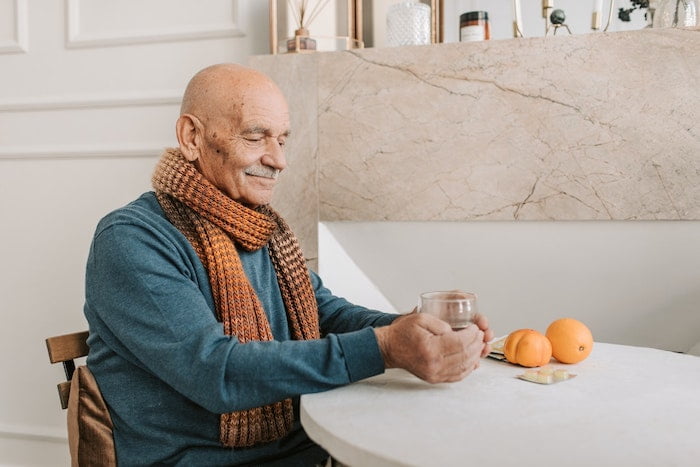
There are a number of drug and alcohol rehabilitation services that are available via the NHS in Leeds – most of which are outpatient services.
While these services are undoubtedly helpful for anyone who needs them, there are long waiting lists for NHS services because it is understaffed and financially stretched.
Unfortunately, it is rare to get any inpatient rehabilitation via the NHS.
If you absolutely cannot afford to attend a private inpatient rehab facility in Leeds, there are other options available for you.
Forward Leeds provides help for anyone who needs help with alcohol and drug use in the Leeds area.[4]
Organisations such as Forward Leeds are there to help people with substance abuse problems without adding extra strain on the NHS.
In many cases, you will be assigned a caseworker who will work alongside you while you attend various group meetings and therapy sessions. A file will be kept on your progress.
It is important to attend all of the treatment programs offered to you so that your caseworker can add these to your file as proof that you are attempting to get better. This will go in your favour if you do decide to apply for NHS funding.
It is important to note, however, that it is common for many of the applications to be denied. This is because the NHS simply does not have the funds to spend such a large amount of money on an individual case.
However, your caseworker will continue working closely with you to ensure that you are getting the best help available to help you overcome your addiction.
Other organisations worth considering
Below is a list of other organisations that offer addiction advice and support for free in Leeds:
1. Forward Leeds, Adult and Young People’s Alcohol and Drug Service
Address: Armley Park Court, 9 Stanningley Rd, Armley, Leeds LS12 2AE
Telephone: 0113 887 2477
Website: http://www.forwardleeds.co.uk/
2. C G L Change Grow Live
Address: 73A Great George St, Leeds LS1 3BR
Telephone: 01132 459445
Website: https://www.changegrowlive.org/
3. Dial House Leeds
Address: Dial House, 12 Chapel St, Halton, Leeds LS15 7RW
Telephone: 0113 260 9328
Website: http://www.lslcs.org.uk/
You can also reach out to a number of helplines, including Mind UK, YoungMinds, Rethink Mental Illness, Samaritans and Papyrus, SMART Recovery or find an Alcoholics Anonymous, Narcotics Anonymous or Cocaine Anonymous near you. The NHS are also there to help you.
Please call our 24-Hour Helpline: 0800 326 5559
How long does rehab last?

The length of time that you will need to spend in a rehab facility in Leeds depends on your individual circumstances and cannot be answered without a clear understanding of your personal living situation, the substance you are addicted to, and the severity of your addiction.
In many cases, a 28-day stay is recommended. This gives enough time for the substance to leave your system and for you to have sufficient time in therapy to fully heal.
For example, a physical addiction – such as an alcohol addiction – causes the user to feel physical withdrawal symptoms , which means they will require a medically assisted detox.
This means that the first seven to ten days in rehab will only be spent detoxing.
For this reason, anyone with an addiction that causes physical withdrawal symptoms needs to spend longer in rehab.
However, if you do not require a medically assisted detox (in the case of a cocaine or cannabis addiction), you can expect to spend around seven-to-ten days in private drug and alcohol rehab in Leeds.
In some severe cases, a 28-day stay is recommended.
One of our addiction experts will be able to help you figure out how long you will need to spend in a rehab facility to overcome your addiction. Call us today on 0800 326 5559.
Please call our 24-Hour Helpline: 0800 326 5559
NHS vs private addiction treatment
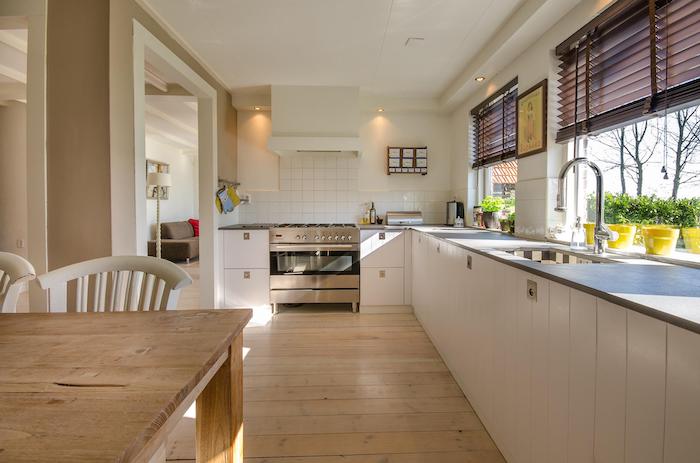
We are incredibly lucky in the UK to have an NHS that we can turn to when we are in need of healthcare. However, long waiting lists and a lack of funding make it difficult to get the treatment needed within a reasonable timeframe.
It is clear that more education needs to be provided on what options are available to people struggling with a substance use disorder.
Many people will turn to the NHS for help without exploring other options, either because they feel that private rehab is out of reach for them financially or because they do not know where else to turn.
If you are considering attending drug and alcohol rehab in Leeds, it is a good idea to understand what help is out there and to compile a list of pros and cons to help you make an informed decision.
Pros of NHS addiction treatment
- It is completely free of charge
- Treatments happen in your local community
- There is no need to stay away from home
- Anyone can avail of the services
Cons of NHS addiction treatment
- Long waiting lists mean your addiction could be worsening while you wait for treatment.
- Low success rates
- No 24/7 access to medical health professionals should you need immediate help.
- No dual diagnosis
Pros of private addiction treatment
- Immediate admission means your treatment can begin straight away
- High success rates
- Dual diagnosis and treatment of co-occurring conditions
- A safe, secure, and non-judgmental environment
- High success rates
- Relapse prevention techniques are taught as part of the treatment plan
Cons of private addiction treatment
- High costs
- Long stays away from home
Ultimately, you can only decide whether you wish to attend private drug and alcohol rehab in Leeds or would prefer to attend rehab through the NHS.
If you are struggling to decide which option would be better for you, contact one of our addiction experts today on 0800 326 5559, who will happily answer any questions you have and help you make a decision on which rehab option is right for you.
Please call our 24-Hour Helpline: 0800 326 5559
Inpatient or outpatient drug and alcohol rehab in Leeds?

NHS and private rehab are not the only choices you will have to make. You will also have to decide between rehab as an inpatient or as an outpatient.
As an outpatient, you can stay at home surrounded by friends and family while you go through the treatment process, as you will only need to attend scheduled appointments at a health clinic.
As an inpatient, you have to stay at a facility for the duration of your treatment.
Outpatient drug and alcohol rehab in Leeds is only recommended when your addiction is not severe and has not lasted for a long time.
If your addiction is severe and has lasted for a long time, it is recommended to attend private drug and alcohol rehab in Leeds to make sure you get the proper care and treatment required to overcome your substance use disorder.
Inpatient rehab will be required if:
- You regularly drink more than 30 units of alcohol per day
- You have a history of violent outbursts while under the influence of drugs or alcohol
- You have previously suffered from alcoholic seizures or delirium tremens
- You have other mental health conditions such as bipolar disorder, ADHD, Autism, depression, or schizophrenia.
Please call our 24-Hour Helpline: 0800 326 5559
Alcohol detox and rehab in Leeds
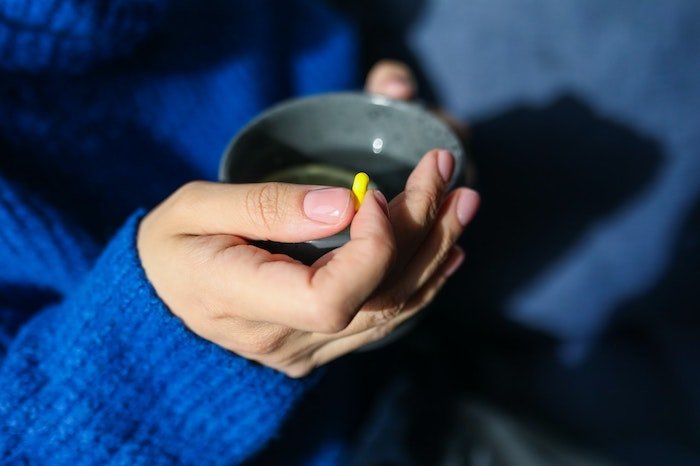
The dangers of alcohol often go overlooked because it is a legal substance. However, alcohol can be dangerous and addictive.
In 2020, 8,974 deaths in the UK were directly related to alcohol.[5]
Alcohol addiction causes physical withdrawal symptoms. This means that you will have to undergo a medically assisted detox before you begin any emotional therapy treatments.
For the first seven-to-ten days that you are there, you will be prescribed a drug – usually a benzodiazepine called Librium (Chlordiazepoxide)– that will reduce the severity of the distressing and sometimes dangerous withdrawal symptoms of alcohol addiction.
Some of these symptoms are:
- Excessive sweating
- Nausea and vomiting
- Insomnia
- Uncontrollable shaking
- Increased heart rate or palpitations
- Anxiety
- Delirium tremens or alcohol seizures
- Loss of appetite
- Confusion or disorientation
Once all the alcohol is out of your system, your dosage of Librium will be decreased until you are completely substance free. During this time, you will begin treatments for the emotional cause of your addiction so you can begin to fully heal.
You may also require other medications such as Acamprosate (Campral®) which helps rebalance the chemicals in the brain that have been damaged by alcohol; an antidepressant like nefazodone, desipramine, or imipramine to aid any anxiety or depression caused by alcohol; or the opioid antagonist Naltrexone which works to uncouple the relationship between alcohol and pleasure.
Alcohol can have effects like difficulty walking, blurred vision, slurred speech, slowed reaction times and impaired memory.
Long-term alcohol addiction can also cause Wernicke-Korsakoff Syndrome, alcoholic neuropathy, alcohol withdrawal syndrome, alcoholic cerebellar degeneration, alcoholic myopathy and fetal alcohol syndrome.
It is incredibly important to begin your recovery now, as being an alcoholic is thought to drastically lower your age of death. For those who have been hospitalised, the average age of death for an alcoholic is 47–53 years in men and 50–58 years in women.
Please call our 24-Hour Helpline: 0800 326 5559
Rehab for cocaine in Leeds

Cocaine is arguably the most commonly used party drug because of the intense energy and focuses it gives the user. The high that cocaine gives only lasts for around 15 minutes, meaning that people tend to take another hit shortly after.
This is one of the reasons why cocaine is highly addictive and dangerous. It is often difficult to pinpoint when it stops being a recreational activity and starts being an addiction.
Attending drug and alcohol rehab in Leeds for an addiction to cocaine is much the same process as most other substances in that you will be monitored through the withdrawal process and treated with different therapies.
Cocaine does not cause any physical withdrawal symptoms, and you can expect to overcome a cocaine addiction in around ten days in private drug and alcohol rehab in Leeds.
Please call our 24-Hour Helpline: 0800 326 5559
Rehab for heroin in Leeds
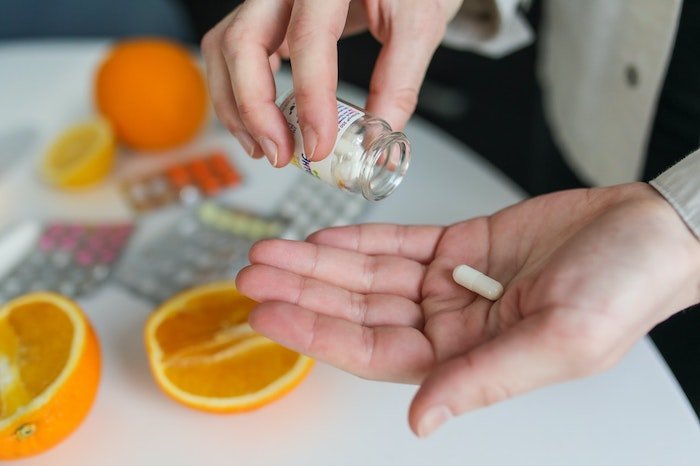
Heroin is one of the most dangerous drugs available and is arguably one of the most addictive drugs. It is most commonly injected; however, some users prefer to smoke it. It can also be snorted directly into the nostrils.
Using heroin on a regular basis increases your risk of developing HIV/AIDS and hepatitis. It can also cause teeth and gum issues, skin issues, extreme weight loss and collapsed veins.
Not only is heroin highly dangerous and addictive, but it also causes dangerous physical withdrawal symptoms when a user is attempting to get clean of their addiction.
To combat these dangerous withdrawal symptoms, a medically assisted detox is necessary for your first seven-to-ten days in rehab in Leeds.
It is recommended to stay in a rehab facility for 28 days when you are overcoming a heroin addiction.
Please call our 24-Hour Helpline: 0800 326 5559
Rehab for cannabis in Leeds

Cannabis is one of the most widely abused drugs available because many people associate its use with healing aches and pains.
However, there have not been enough scientific studies to prove that cannabis has any medicinal qualities, and it remains an addictive psychoactive drug that is known to cause paranoia.
A study by Wayne Hall and Louisa Degenhardt identified the adverse side effects of regular use of cannabis during adolescence and into adulthood can include ‘a dependence syndrome, increased risk of motor vehicle crashes, impaired respiratory function, cardiovascular disease, and adverse effects of regular use on adolescent psychosocial development and mental health’.
Cannabis is not a physically addictive drug and does not require a medical detox.
If you attend drug and alcohol rehab in Leeds to overcome a cannabis addiction, you can expect to be there for around seven-to-ten days.
Please call our 24-Hour Helpline: 0800 326 5559
What therapies can I expect in drug and alcohol rehab in Leeds?
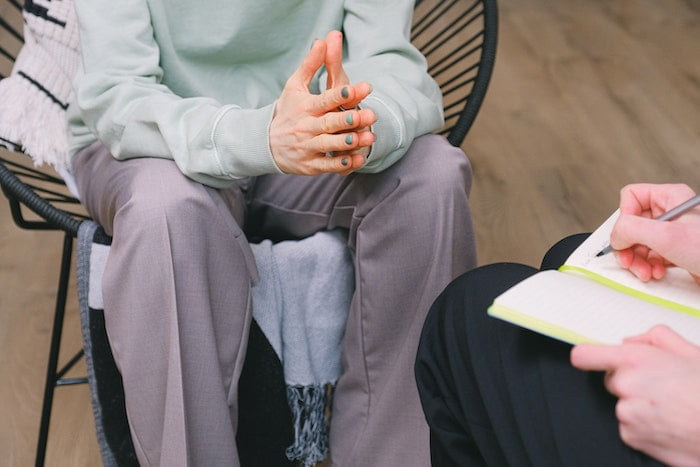
When attending drug and alcohol rehab in Leeds, you can expect a variety of therapies. However, they tend to differ between facilities, and you will not necessarily avail of every therapy that the facility you attend has to offer.
This is because your treatment will be personalised to your own specific needs to give you the best chance at obtaining sobriety.
There are a number of common therapies available throughout most facilities, including:
Cognitive Behavioural Therapy
Cognitive Behavioural Therapy (CBT) teaches you to approach certain aspects of your life with a positive mental attitude. The idea of CBT is that positivity breeds positivity.
Dialectical Behavioural Therapy
Dialectical Behaviour Therapy (DBT)teaches that you cannot change the past and to accept it and move on with no negativity.
Brief Interventions
A brief intervention encourages the service user to focus on one particular problem until they have reached a solution.
Motivational Interviewing
Motivational Interviewing (MI) encourages the service user to list certain positive aspects in their lives and use these positive people or situations as motivation to get better.
Holistic Therapies
Holistic Therapies (HT) introduce a sense of calm and teach the service user to direct their anxieties and negativity toward an art form. Art, music, and movement are often encouraged as healthy ways to unload stress and anxiety.
Group Therapy
In a group therapy session, people can talk freely about their addiction and what led to it. Groups allow people to talk to others without feeling judged.
Individual Therapy
Individual therapy turns the focus away from your addiction and focuses on the service user as a person. These sessions provide a safe space where you can discuss anything that’s on your mind or troubling you.
Family Therapy
Family therapy sessions help to mend relationships that were affected by the addiction.
Co-dependency Treatment
Co-dependency treatment teaches users why these relationships are unhealthy. These sessions will teach you how to avoid these relationships in the future.
Twelve-step Facilitation
Twelve-step facilitation helps you find a twelve-step program in your local area.
Please call our 24-Hour Helpline: 0800 326 5559
Why is dual diagnosis important?

Quite often, addiction is a condition that occurs alongside other conditions such as depression, anxiety, or bipolar disorder.
When your addiction is treated, but the co-occurring psychiatric disorder is left untreated, your chances of relapsing are heightened because the root cause of your addiction has not been discovered.
In drug and alcohol rehab in Leeds – while the addiction is the main concern – the individual as a whole is also important and needs to be healed.
This means that highly trained therapists will be able to spot whether or not you have any co-occurring conditions and will treat these alongside the addiction.
This way, when you leave the facility, you will be the healthiest possible version of yourself and have a higher chance of maintaining sobriety.
As well as dual diagnosis, drug and alcohol rehab in Leeds will focus on relapse prevention techniques such as mindful meditation, and you will also learn how to spot and avoid your triggers.
When you understand your triggers, you will know how to avoid them, and if there comes a time when a trigger is unavoidable, you will be armed with the techniques that will allow you to overcome it.
Please call our 24-Hour Helpline: 0800 326 5559
Does drug and alcohol rehab in Leeds offer aftercare services?

Aftercare packages are a standard part of the overall drug and alcohol rehab program in Leeds.
Not only will you be taught how to best care for your own well-being after you have left the facility, but you will also be pointed towards other support services that you can avail of.
These services include:
Alcoholics Anonymous and Narcotics Anonymous Groups
Alcoholics Anonymous (AA) and Narcotics Anonymous (NA) are twelve-step programs that take place in groups in community centres.
SMART Recovery
Self-Management and Recovery Training (SMART) are group meetings guided by facilitators that teach you how to move away from problematic behaviours.
Home Detox
If you have relapsed, you may be able to undergo detox at home. Ask your facility for help and advice about this as soon as possible.
Alcoholics Anonymous Family Meetings
These Al-Anon meetings are for friends or family members whose lives have been impacted by the addiction of a loved one.
Please call our 24-Hour Helpline: 0800 326 5559
How OK Rehab Can Help You
We at OK Rehab have one main function and goal – to get those who need it into a suitable rehab as quickly and easily as possible.
With our expertise and our extensive network of contacts, we have the means to refer our service users to a top-quality private rehab facility in the West Yorkshire area.
This gives those who are struggling the chance to focus on their recovery in a safe, secure environment while not being too far from home and your support network.
There are many different rehab centres in the West Yorkshire area. We have knowledge of each of these facilities and how they operate.
Once we have learned a little more about you and your addiction problems, we can make a sound judgment as to which rehab would be the right one for you.
From there, we help you with the practicalities of getting into rehabs, such as cost, financing, timeframe, and other such concerns.
Please call our 24-Hour Helpline: 0800 326 5559
Rehab in Leeds – Get Help Today
After reading through the sections above, we hope that you now have a better understanding of how and why rehab is so effective at treating addiction. We are here to make your transition into rehab as smooth and frictionless as possible.
Once you arrive at the facility, you will be able to focus solely on getting better and starting your new, healthy life.
If you are ready to acknowledge your addiction and put in the work required to face it, please call us on 0800 326 5559 for your telephone consultation about treatment options.
This includes both private and statutory addiction treatments. All drug and alcohol rehabs are registered and audited by the Care Quality Commission (CQC).
However stressed, vulnerable, or hopeless you may be feeling in addiction, there is always a way out. Recovery is always a possibility if you trust and commit to the process.
OK Rehab also offers drug and alcohol rehab services within and around Leeds, including Manchester, York, Liverpool, Morley, Pudsey, Dewsbury, Batley and Wakefield.
Please call our 24-Hour Helpline: 0800 326 5559
References:
[1] Public Health England – https://www.ndtms.net/resources/public/Parental%20substance%20misuse/Yorkshire%20and%20the%20Humber/YH_Leeds_2019-20_Parental_substance_misuse_data_pack.html
[2] Yorkshire Post – Rise in deaths caused by drugs and alcohol – https://www.yorkshirepost.co.uk/health/rise-in-deaths-caused-by-drugs-and-alcohol-across-yorkshire-figures-from-coroners-show-3251638
[3] The CAGE questionnaire – https://skylark.ucl.ac.uk/NSHD/lib/exe/fetch.php?media=mrepo:cage.pdf
[4] Forward Leeds – https://www.forwardleeds.co.uk/
[5] Alcohol-specific deaths in the UK 2020 – https://www.ons.gov.uk/peoplepopulationandcommunity/healthandsocialcare/causesofdeath/bulletins/alcoholrelateddeathsintheunitedkingdom/registeredin2020#:~:text=In%202020%2C%20there%20were%208%2C974,time%20series%20began%20in%202001.





